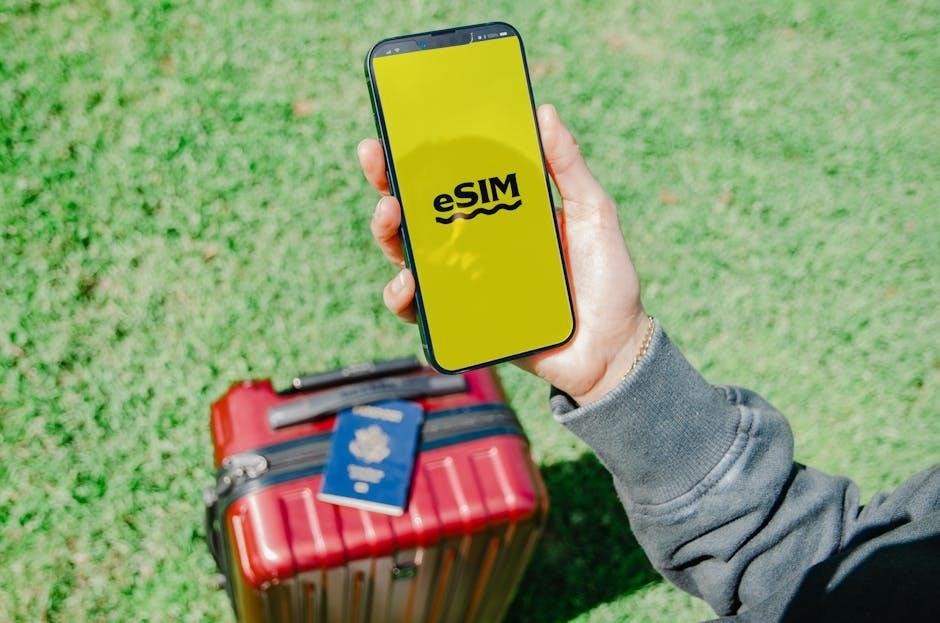Siddur Sim Shalom is a widely used Jewish prayer book offering services for weekdays, Shabbat, and festivals. It includes English translations, transliterations, and meaningful readings, making it accessible to diverse congregants. Published by the Rabbinical Assembly, it balances tradition with contemporary needs, fostering inclusive worship experiences.

History and Evolution of Siddur Sim Shalom

The Siddur Sim Shalom has its roots in the liturgical reforms of the Conservative Jewish movement. First published in 1985, it was edited by Rabbi Jules Harlow and quickly became a standard prayer book in many Conservative synagogues. The Siddur reflects a balance between traditional Hebrew prayers and contemporary English translations, aiming to engage modern worshipers while preserving Jewish liturgical heritage.
Over the years, Siddur Sim Shalom has undergone adaptations to meet the needs of diverse communities. A Shabbat and Festival edition was released in 1998, followed by a Weekday Siddur in 2002. These editions incorporated feedback from congregants and clergy, ensuring the text remained relevant and accessible. The Siddur also includes optional readings and alternative prayers, allowing for flexibility in worship.
In recent years, digital versions of Siddur Sim Shalom have been developed, making it easier for congregations to access and use during services. This evolution underscores its enduring importance as a prayer book that bridges tradition and modernity, fostering meaningful Jewish worship experiences for generations.
Structure and Organization of the Siddur
The Siddur Sim Shalom is meticulously organized to guide worshipers through Jewish prayer services seamlessly. It is divided into sections for weekdays, Shabbat, and festivals, ensuring relevance for every occasion. The Siddur begins with Birchot Hashachar (Morning Blessings), followed by Psukei D’zimra (Preliminary Praises), and progresses through the Shema and Amidah, central to Jewish prayer. Each service section is clearly demarcated, making it easy for congregants to follow along.
Additional sections include prayers for special moments, such as Kabbalat Shabbat and Havdalah, marking the beginning and end of Shabbat. The Siddur also incorporates English translations and transliterations, enhancing accessibility for those less familiar with Hebrew. This thoughtful structure ensures that the Siddur caters to diverse needs while maintaining traditional liturgical integrity. Its clear organization makes it a valuable resource for both personal and communal worship experiences.
Significance of “Sim Shalom” in Jewish Prayer
The phrase “Sim Shalom” (Grant Peace) holds profound significance in Jewish prayer, embodying the universal aspiration for peace and harmony. It is a central prayer recited daily in the Amidah, the standing prayer, and is particularly emphasized in the Siddur Sim Shalom. This prayer seeks divine benevolence, asking for peace, prosperity, and wholeness for individuals and the community. Its placement at the end of the Amidah underscores its importance as a concluding plea for blessings.
“Sim Shalom” reflects Jewish values of shalom (peace) as a state of completeness and well-being. It is not merely a request for personal tranquility but also for collective harmony and divine favor. This prayer resonates deeply, especially in synagogue services, where it unites congregants in a shared hope for a peaceful world. Through its inclusion in the Siddur, “Sim Shalom” remains a cornerstone of Jewish liturgy, inspiring worshippers to strive for peace in all aspects of life.
Key Sections of the Siddur Sim Shalom PDF
The Siddur Sim Shalom PDF is organized into distinct sections, including Weekday Services (Shaharit, Minhah, Maariv), Shabbat and Festival Services (Kabbalat Shabbat, Shaharit, Musaf), and Special Services like Yizkor and Havdalah. It also includes Hebrew prayers with English translations, ensuring accessibility for all worshippers.
Weekday Services (Shaharit, Minhah, Maariv)

The Siddur Sim Shalom includes comprehensive weekday services, ensuring a consistent and meaningful prayer experience. Shaharit (morning service) begins with Birchot Hashachar (morning blessings), followed by the Shema and its accompanying prayers. The Amidah, a central prayer, is recited silently, reflecting personal and communal supplications.
The Minhah (afternoon service) mirrors Shaharit, with a focus on gratitude and reflection. It includes the Shema, Amidah, and additional passages like Tachanun (supplications).
Maariv (evening service) features the Shema and Amidah, concluding with songs like Aleinu. The PDF version provides Hebrew text with English translations and transliterations, making it accessible to all worshippers. These services maintain a balance between tradition and contemporary spiritual needs, fostering connection and reflection in daily life.
Shabbat and Festival Services (Kabbalat Shabbat, Shaharit, Musaf)

The Siddur Sim Shalom provides a rich and structured framework for Shabbat and festival services. Kabbalat Shabbat initiates the Sabbath with poetic songs like Lecha Dodi, welcoming the divine presence; The service transitions into Maariv, featuring the Shema and Amidah, with a focus on rest and renewal.
On Shabbat mornings, Shaharit includes the Shema, Amidah, and a central Torah reading. The Musaf service follows, with additional prayers and a recollection of the Temple sacrifices. Festivals incorporate similar structures, with adjustments for specific holiday themes.
The PDF version of Siddur Sim Shalom offers Hebrew text, English translations, and transliterations, ensuring accessibility for all worshippers. These services are enhanced by inspiring readings and blessings, fostering a deep connection to Jewish tradition and spirituality. The Rabbinical Assembly’s editions, such as the 1985 standard version, have been adapted for Shabbat and festivals, maintaining both authenticity and relevance.
Special Services and Prayers (Yizkor, Havdalah)
The Siddur Sim Shalom includes special services and prayers for meaningful Jewish rituals. Yizkor, the memorial service, is recited on Yom Kippur, Sukkot, Passover, and Shemini Atzeret. It honors the memories of loved ones with prayers like El Malei Rachamim and Av HaRachamim. The PDF version provides English translations and transliterations, ensuring accessibility for all.
Havdalah marks the end of Shabbat and festivals, separating sacred time from the weekday. The service includes blessings over wine, spices, and fire, symbolizing the distinction between light and darkness. The Havdalah prayer in Siddur Sim Shalom is presented with Hebrew text, English translations, and transliterations, enriching the experience.
These services reflect the balance between tradition and contemporary practice, offering comfort and connection to Jewish heritage. The PDF format allows worshippers to easily follow along, making these sacred moments more meaningful and inclusive.

Downloading and Accessing the Siddur Sim Shalom PDF
The Siddur Sim Shalom PDF is available for download on official Jewish congregation websites. Access requires basic registration, ensuring adherence to copyright rules. The PDF is viewable online or printable, with restrictions during specific periods like the pandemic.
How to Download the PDF Version
Downloading the Siddur Sim Shalom PDF is a straightforward process. Visit the official website of your local synagogue or the Rabbinical Assembly, where the PDF is often available for free or with minimal registration. Some congregations require users to provide basic personal information, such as name and email, to access the downloadable files. Once registered, navigate to the prayer resources or downloads section of the website. Click on the provided link for the Siddur Sim Shalom PDF, which may be labeled for weekdays, Shabbat, or festivals. The PDF will open in your browser, allowing you to view it online or print it for personal use. Ensure you respect copyright restrictions, as the PDF is typically for non-commercial, personal, or congregational use only. This digital format is convenient for those seeking to follow along with services or practice prayers at home.

Benefits of Using the Digital Siddur
The digital Siddur Sim Shalom PDF offers numerous advantages for worshippers. Its portability allows users to access prayers and services on smartphones, tablets, or laptops, making it ideal for travel or personal study. The digital format enables easy navigation through services via bookmarks or search functions, saving time during worship. Additionally, the PDF can be viewed on-screen, reducing the need for physical copies and minimizing clutter. For those with visual impairments, the text can be enlarged for better readability. The digital version also supports environmentally conscious practices by reducing paper usage. Many congregations provide access to the PDF for free or with minimal registration, ensuring accessibility for all members. Furthermore, the digital Siddur is often updated to reflect contemporary practices, ensuring worshippers have the most current version. This format is particularly beneficial for online services, allowing participants to follow along seamlessly from home. Overall, the digital Siddur Sim Shalom enhances worship experiences through convenience, accessibility, and innovation.
Copyright and Legal Considerations
The Siddur Sim Shalom PDF is protected under copyright by the Rabbinical Assembly, which owns the rights to the publication. Users are required to adhere to specific terms and conditions when accessing or sharing the digital version. The PDF is typically available for personal or congregational use, but reproduction or distribution for commercial purposes is strictly prohibited without prior permission. Some versions, especially those adapted for online services during the pandemic, are marked as “for electronic use only” and may not be printed or shared widely. Legal restrictions also apply to modifying the content or using it in ways that infringe on the copyright holder’s rights. Violating these terms can result in legal consequences. Congregations and individuals are encouraged to respect these guidelines to ensure the continued availability of the Siddur for Jewish communities worldwide. Proper attribution and adherence to copyright laws are essential to supporting the Rabbinical Assembly’s efforts in preserving and sharing Jewish prayer traditions.
